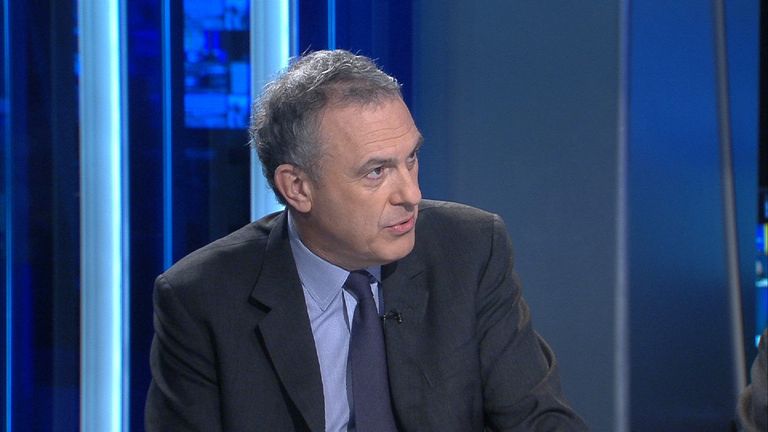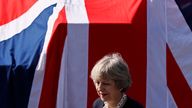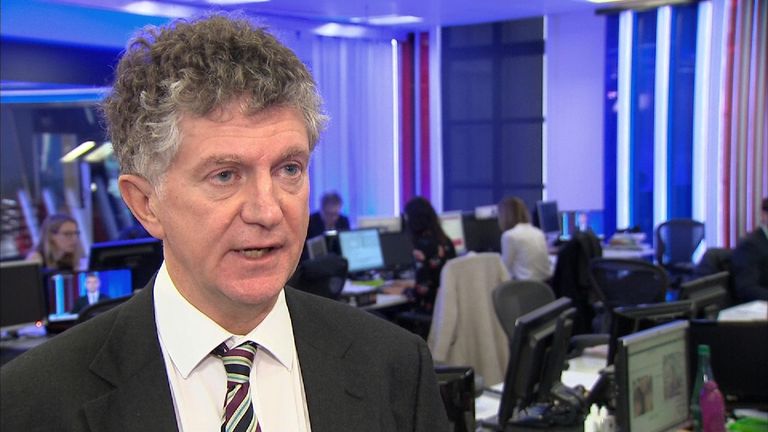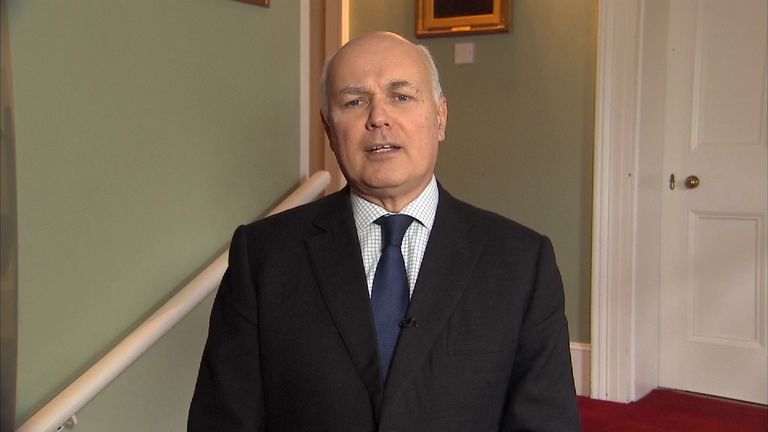Undiplomatic diplomat Sir Ivan Rogers outlines UK's Brexit weaknesses
Theresa May must now find a replacement for the experienced outgoing envoy, which could prove difficult in the Whitehall jungle.
Thursday 5 January 2017 01:10, UK
When Sir Ivan Rogers arrived in Brussels in 2013 he told everyone who cared to listen, that he believed there was a 40% chance of Brexit happening.
That was a pretty gloomy outlook at the time, well before the migration crisis and other strains that made an out vote far more likely.
It was characteristic of a man known for his cool, calm realism with a willingness to say it how it is.
But until now that frank, uncompromising approach was reserved for private communications with his political masters and diplomatic colleagues.
He has now he knew would immediately go public. The more controversial bits are these:
He pointedly refutes the beliefs of some who think that free trade just happens when it is not thwarted by authorities.
This appears to be a thinly veiled attack on the alleged wishful thinking of Brexiteers in government.
He refers to the ill-founded arguments and muddled thinking of those in power, hence this morning's "Muddled Brexit" headlines.
And then there is this: "We do not yet know what the Government will set as negotiating objectives for the UK's relationship with the EU after exit. There is much we will not know until later this year about the political shape of the EU itself."
To some this is a horrifying admission that the Government even in private has no clue what it wants out of those negotiations.
To others it is a realistic assessment. Until French and German elections are out of the way, those objectives need to remain fluid.
He also points out that "serious multilateral negotiating experience is in short supply in Whitehall and that is not the case in the Commission or in the Council".
The picture he paints is not reassuring just a few months before negotiations begin on Britain's withdrawal from the EU.
He has deserted his team ahead of kick-off and laid out in black and white some of the weaknesses of its negotiating position.
His unprecedented resignation letter is in that sense a betrayal. Governments should be able to expect loyalty and discretion from their diplomats even when they leave office.
There is plenty cause for concern in the email, but Sir Ivan's critics argue his resignation is an opportunity.
They say he had gone native, was only able to see things through the EU lens, was batting for the other side. That kind of criticism is unfair and going too far.
But Sir Ivan was at the heart of David Cameron's negotiations with the EU that failed to secure a strong enough deal to avert Brexit happening.
There is something in the argument that it is time for someone new, someone prepared to push the envelope in these new negotiations.
True, many of the cards are in the EU's hands. But there is considerable jeopardy for European member states too in the manner in which the UK exits the EU.
Perhaps there is a need for a fresh approach to think out of the box and exploit that leverage as much as possible.
But Theresa May will need to find someone who also has the kind of knowledge, multilateral expertise and contacts that Sir Ivan will be taking away with him.
And as he has pointed out in his email, in Whitehall they don't grow on trees.







